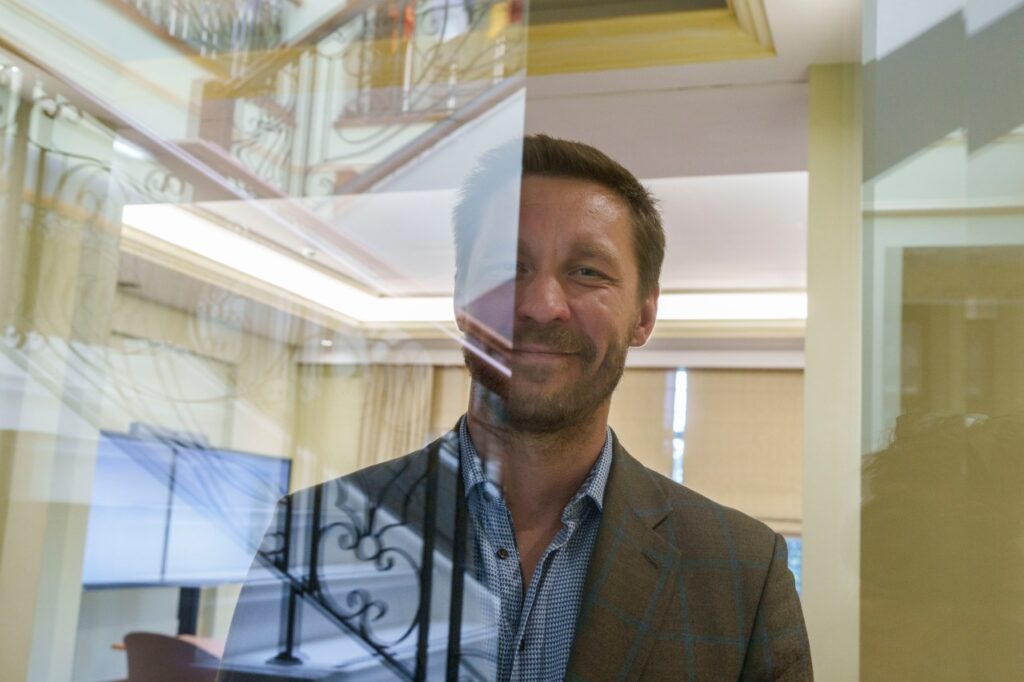Derek Gatopoulos, The Associated Press
11 minutes ago

Juhan Lepassar, executive director of the European Union Cybersecurity Agency (ENISA), poses for a photo during an interview with The Associated Press in Athens, Greece, Tuesday, May 28, 2024. Lepassar said the Athens-based agency recorded a sharp increase in cybersecurity incidents in 2024. National and multinational cybersecurity agencies are stepping up activities and exercises globally ahead of elections in the European Union, the United States and other countries. (AP Photo/Petros Giannakouris)
ATHENS, Greece (AP) — Destructive digital attacks, many of which are perpetrated by Russian-backed groups, have doubled in the European Union in recent months and are also targeting election-related services, the European Union's cybersecurity chief says.
In an interview with The Associated Press, Juhan Lepassar, head of the European Union Cybersecurity Agency (ENISA), said there has been a steady increase in geopolitically motivated attacks since Russia's full-scale invasion of Ukraine on Feb. 24, 2022.
“The number of hacktivist attacks – threat actors whose primary goal is to cause disruption – against European infrastructure doubled between the fourth quarter of 2023 and the first quarter of 2024,” Lepassard said late Tuesday at CIA headquarters in Athens.
“That's a pretty big increase,” he said.
Citizens across the 27 EU member states will vote June 6-9 in European Parliament elections that will also determine the election of the EU's executive body, the European Commission. With elections also coming up in the United States, Britain and many other countries, security officials are on high alert for the threat of sabotage funded by hostile forces.
Over the past seven months, ENISA has led exercises and intensive consultations aimed at strengthening the resilience of EU election-related institutions. In its 2023 annual report, the agency noted a sharp increase in ransomware attacks and incidents targeting public institutions.
Lepassard said the attack methods, while largely unsuccessful, had been tried extensively in Ukraine before being expanded to other EU countries.
“This is part of Russia's war of aggression, they are fighting physically in Ukraine, but also digitally across Europe,” he said.
Experts have warned that artificial intelligence tools are being used at an accelerating pace and on a larger scale to target Western voters using misleading or false information, including hyper-realistic video and audio clips known as deepfakes.
“Cybersecurity agencies in member states have also highlighted that AI-enabled disinformation and manipulation pose a major threat,” Lepassard said.
His comments echoed a warning issued this month by US Director of National Intelligence Avril Haines that technological advances are enabling more countries and groups to launch effective disinformation campaigns.
U.S. and European experts are helping security agencies anticipate emerging digital threats and vulnerabilities over the next decade, with ENISA identifying food production, satellite management and self-driving cars as areas needing attention.
Lepassard argues that cybersecurity inevitably needs to become second nature for designers and consumers.
“I believe we have a societal challenge ahead of us to understand digital security in the same way we understand security in our everyday transportation environments,” he said.
“When we're driving a car, we're aware of what's going on around us. We're paying attention,” he said. “We need to adopt those same behaviors and habits when we're driving in any digital environment.”
___ Follow AP's election coverage at: https://apnews.com/hub/global-elections


